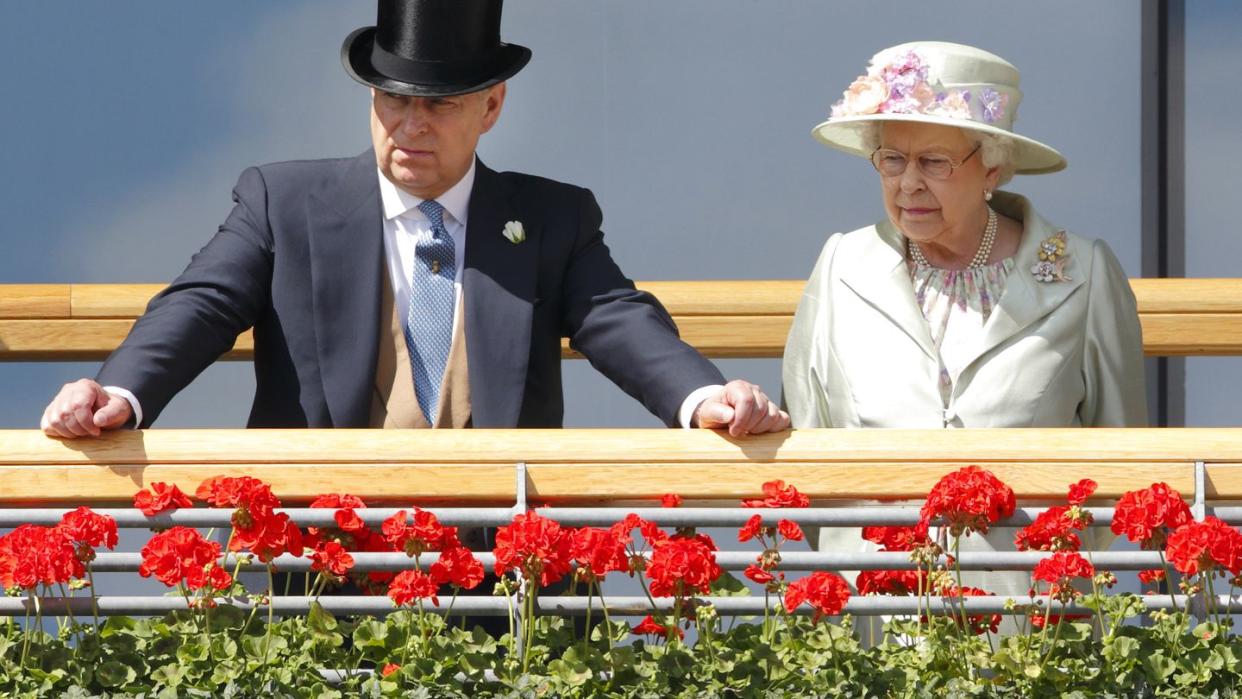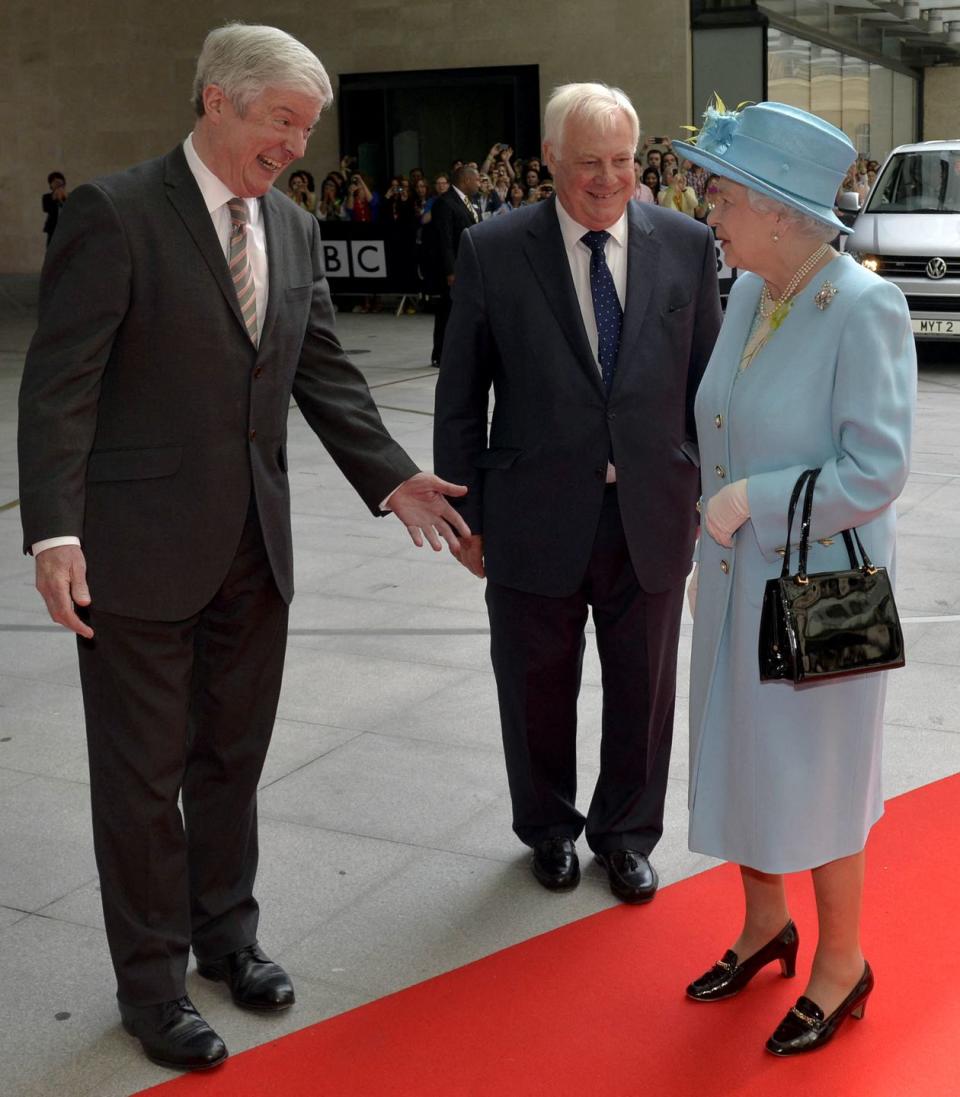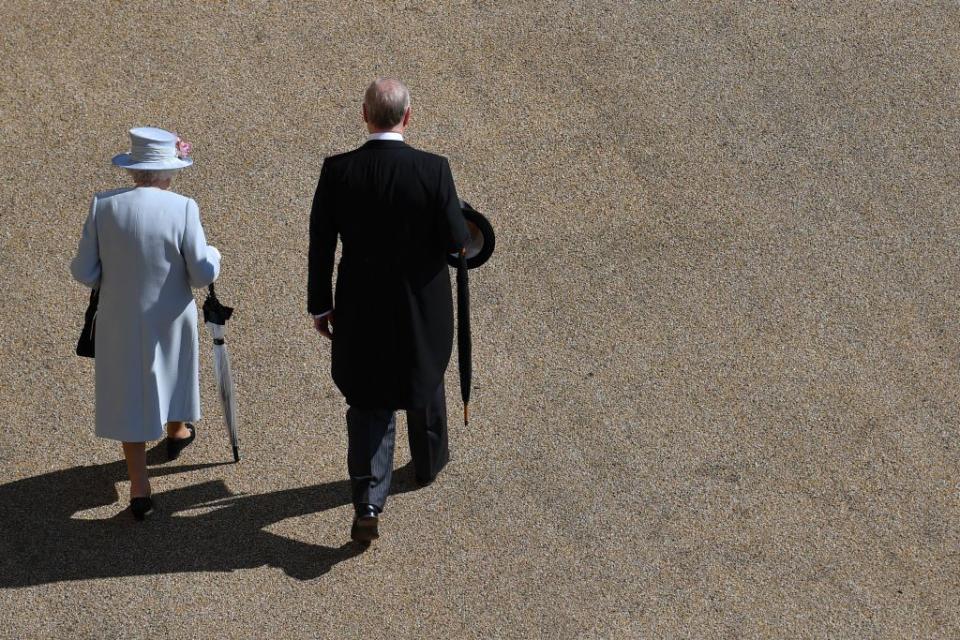Could Queen Elizabeth Have Stopped Prince Andrew's BBC Interview From Airing?

- Oops!Something went wrong.Please try again later.
- Oops!Something went wrong.Please try again later.
- Oops!Something went wrong.Please try again later.
"Hearst Magazines and Yahoo may earn commission or revenue on some items through these links."
In a tense moment about halfway through Scoop, Prince Andrew's private secretary, Amanda Thirsk, confirms the interview is a go.
Almost immediately, Newsnight editor Esme Wren (played by Romola Garai) goes to speak with Fran Unsworth, BBC's director of news. "When it's done, nobody sees the cut until the DG and I have seen it," Fran (Lia Williams) tells the Newsnight women, with 'DG' referring to the BBC Director-General Tony Hall (Andrew MacBean).
Shortly after the interview is filmed at Buckingham Palace, Tony and Fran are in the Newsnight offices, meeting with Esme and deputy editor Stewart Maclean (Richard Goulding). Fran asks, referring to Queen Elizabeth, "She had her man in the room when you shot the interview. He recorded it. Yes?" Esme replies, "Could she stop it going out, Tony?" He answers, "Well, she is the Queen. I mean, I'd have to take the call."
But could Queen Elizabeth have intervened to stop the Prince Andrew Newsnight interview from running? The answer isn't so black-and-white.

The BBC, short for the British Broadcasting Corporation, was established in 1922 under a royal charter, as a publicly funded broadcasting network. Per CNN, the BBC is still "predominantly funded by UK households via a license fee."
"They have shaped each other over the past 70 years or so—at the beginning of the BBC, monarchy was often covered in order to give the channel some legitimacy and respectability in the minds of the public, because it has close ties to institutions of state. The BBC built their reputation as a national institution through establishing exclusive rights to broadcast royal events. Likewise, the BBC was central to the monarchy, as this gave them new platforms for mediation," Dr. Laura Clancy, the author of Running the Family Firm: How the Monarchy Manages its Image and our Money, said in an interview with the Daily Beast in 2021.
Over the decades, major royal events—such as Queen Elizabeth's 21st birthday message, her coronation, and the first TV interview with a royal (Prince Philip in 1961)—were broadcast on the BBC.
"The BBC is trying to be the state broadcaster and the home to extraordinary journalism, and those two things sometimes clash in the middle," journalist Emily Maitlis said in the documentary Days That Shook the BBC With David Dimbleby. She added, "The BBC tends to regard the monarch as above politics, and a lot of the discussion on the BBC proceeds on that basis."

There are conflicting reports on whether or not Queen Elizabeth approved Prince Andrew's Newsnight interview. At the time, a Buckingham Palace spokesperson would only say that the Queen was "aware" of the interview, but not that she approved it. In her book Scoops, Sam McAlister writes, "I could barely believe the Palace would let it go ahead. Surely there would be some kind of legal intervention? Surely they’d try and spike it, once they had a moment to realise how hideously badly it had gone? Surely Esme would face legal threats beforehand? The Director-General would be involved? Nothing and nobody came."
Reportedly, Queen Elizabeth realized before Andrew did how disastrous the interview was going to be. In the Channel 4 documentary The Problem Prince, Maitlis said, "It was only on the Saturday when the Queen had reportedly read the whole transcript that he received a tap on the shoulder by his security detail. And they said, I think, 'Sir, you might have to come with us.' It was after the Queen had seen what the interview contained that I think it dawned on her before it dawned on him." Days later, Prince Andrew would step down from his role as a senior working royal.
You Might Also Like

